Learning to Doubt Without Fear
When I started teaching teens at a Christian school a decade ago, I was baffled by how classroom discussion of controversial topics seemed to provoke panic among many parents.
What surprised me was not simply that parents objected to my choice of material but rather the terror that seemed to underlie their objections. It wasn’t rational. It wasn’t even theological. It was emotional: a nameless, faceless, gaping fear.
I’m still not sure what those parents were so afraid of, but I know it had something to do with their children learning to question their faith, to honestly consider other options and opinions, to lose their “innocence” by comprehending more of the ugly, broken, sinful aspects of our world. They worried that their children would begin to question God, His promises and His power. In a word, I think they were afraid of doubt.
If doubt is actually as bad as they seem to think, they were right to be dissatisfied with me as a teacher. Sometimes I think I live half my life in doubt. It is certainly no stranger to my spiritual life. Does God really answer prayers? What about all the suffering in the world? Is God just a figment of my imagination? A coping mechanism I use to comfort myself? Even if He is real, is Christianity the only way to reach Him? If it is, what exactly should a Christian life look like? Is it possible that we’re getting a lot of it wrong?
My doubt used to make me panic too, at times. I would see myself standing at the edge of a spiritual cliff: one more step and I would begin to slip irreversibly down the slope to disbelief and damnation. Or perhaps, I would think, I took that fatal step already without realizing it.
I would see myself standing at the edge of a spiritual cliff:
one more step and I would begin to slip irreversibly down the slope to disbelief and damnation.
In those moments, I would begin to scramble, to grasp at anything I could get my hands on: attending Bible studies, registering for church classes, joining the choir, implementing military discipline for my devotional time. I would go through as many motions of being a good, pious, “on-fire” Christian as I could.
And I would hate every minute of it. Which would make me feel even further from God. Which would make me despair.
The harder I fought against that doubt, the stronger its hold became on my soul.
Until finally, I began to recognize this as a terrible, vicious, tragic cycle, exactly the kind of trap the enemy would design for us.
The problem arises, I think, when we create a false dichotomy: faith vs. doubt. We believe that if we had true faith, we would not doubt; consequently, if we are doubting, we must not have faith. But I have come to believe that the opposite is true: if we are not doubting—if we are not struggling, wrestling, questioning—we are not fully engaged in the continual process that is having faith.
I first heard this idea articulated by the religious scholar Paul Tillich, who said that doubt is not the opposite of faith but rather an essential part of it. He believed that faith was a constant dialog with God, a cycle of discovering, losing, and recovering faith. He believed that the stage of loss and doubt was, therefore, just as important as the stage of recovery and confidence.
Perhaps, without doubt there can be no faith, only acceptance. If faith is a confidence in things hoped for, an assurance of things unseen (Hebrews 11:1), it is by definition something all mixed up with doubt; when our senses tell us one thing but our hope tells us another, it is our faith that fills the gap.
In Mark 9:20-24, the father of the sick boy beseeches Jesus, “If you can do anything, take pity on us and help us!” Jesus questions his lack of faith apparent in his use of the word “if,” and the man responds, “Lord, I believe, but help my unbelief!” This man’s brutal honesty says what I think so many of us feel: that we want to believe, that we do believe, but not perfectly, and we need help to overcome the cracks of doubt that litter our faith. Importantly, Jesus does not rebuke or deny the father for expressing this doubt; instead, he heals his son, rewarding the man’s faith and his honesty about its imperfection.
So, today, I am not ashamed to wrestle with my faith, exploring my doubts and questioning my assumptions. Even in my darkest moments, I hope desperately that God is real and that His promises are true—and that hoping, I am convinced, is what matters, not how often I attend church or how much I read the Bible or how well I know this or that catechism (although those are all good and useful things). And certainly not how seldom I experience doubt.
Doubt is not the problem. On its own, it’s a healthy sign of an inquiring mind—a mind that is secure enough to make itself vulnerable by asking questions, a mind that is not afraid of the answers it may find. What is a problem is when we allow doubt to incite fear.
One of my favorite verses of the Bible, 1 John 4:18, reads, “There is no fear in love.” In our mission to emulate Christ, we should strive to live from a place of fearless love, confident in the protection and sovereignty of God. The minute we’re acting out of a place of fear, we have stopped acting out of love. Fear is about “me,” about my safety and security and comfort. Fear is by definition self-focused, and it is the opposite of trust. And trust, my friends, is the foundation of love—love of ourselves, love of others, love of God.
Fear is corrosive. And fear of our own doubt can be one of the most damaging fears of all. Ultimately, it results from a lack of faith in the power of God to guide us through the temptations and confusions of this life.
Let me say that again: fear, not doubt, is the result of a lack of faith.
Faith, like love, is founded on trust. Wondering, questioning, doubting—none of these is sinful, and none is a sign of any kind of spiritual defect. To the contrary, I firmly believe that questioning is a sign of a robust faith—a relationship secure enough to have those honest conversations, just as you should be able to ask your spouse, “Do you really love me? What if . . . ? Why did you . . . ?” Voicing and thereby acknowledging your doubts actually strengthens a relationship, provided both parties can discuss those doubts without fear (or blame).
Sharing your doubts with someone is, ultimately, a vulnerable, courageous act. It says, “I know you love me and accept me wholly as I am, that there is no thought or emotion that is unacceptable to you, and therefore, I am not afraid to share every part of me with you—I trust you with all of myself, including my uncertainty.” That trust isn’t always perfectly received when we’re talking with another human, but it is with God. He never condemns us for revealing what is in our hearts but always loves, comforts, and understands.
God can handle our doubts. He can handle our confusion. He does not demand that we walk through our lives with perfect certainty. He asks only that we turn to Him in those moments and allow Him to speak gently into those questions, to walk beside us through the inevitable valleys of our spiritual journey.
All we have to do is hope, to desire Him, and to trust Him. The rest is up to God, and He is more than capable.






